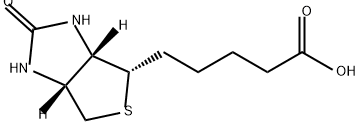Product Introduction
Biotin, also known as vitamin H or vitamin B7, is a water-soluble vitamin and one of the B vitamins. It is widely used in food raw materials and has a variety of physiological functions and uses.
Biotin's stability in and out of the body and its multiple applications make it an important nutrient and functional additive, widely used in the food, health care products and cosmetics industries. It plays a significant role in maintaining physical health, promoting metabolism, and enhancing immunity.
Physiological function
Energy metabolism: Biotin, as a coenzyme, participates in the metabolism of fatty acids, sugars and proteins, is an essential component of carboxylase, and helps convert food into energy.
Cell health and regeneration: It is beneficial to the health and regeneration of cells, and promotes the normal functioning and growth of sweat glands, nerve tissues, bone marrow, male gonads, skin and hair.
Blood sugar regulation: Diabetic patients can improve blood sugar regulation through biotin.
Beauty effects: Improve the health of hair, skin and nails, help maintain the normal function of the skin, and alleviate symptoms such as dry skin and hair loss.
Enhance immunity: Enhance the body's immune response and resistance to infection, and maintain the body's humoral immunity and cellular immunity.
Application range
Food additives: Biotin can be used in bread, cakes, noodles, macaroni, etc. to improve the utilization rate of raw materials and improve taste and flavor; used in aquatic products, canned foods, etc. to strengthen tissue and maintain freshness; used as a thickener and stabilizer in foods such as sauces, tomato sauce, and mayonnaise.
Health products: used as a nutritional supplement in infant food and drinking liquids to enhance nutritional content.
Cosmetics: used in beauty products such as skin care and shampoo to maintain skin and hair health and promote cell growth and metabolism.
Medical use: used to prevent and treat symptoms such as dermatitis, hair loss, and decreased immune function caused by biotin deficiency, and to support the metabolism of fats, proteins, and carbohydrates.

